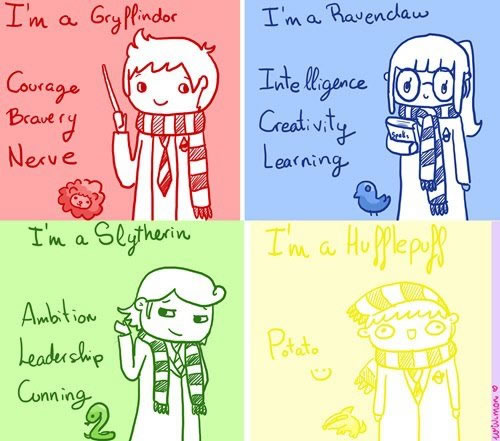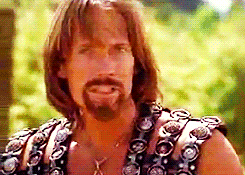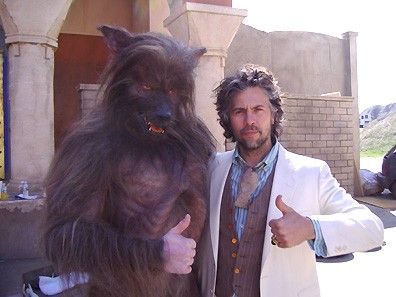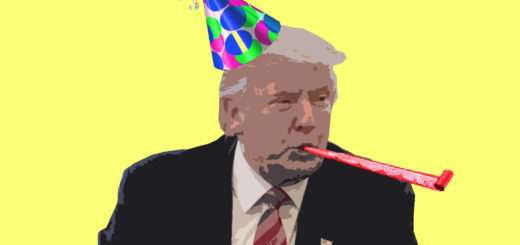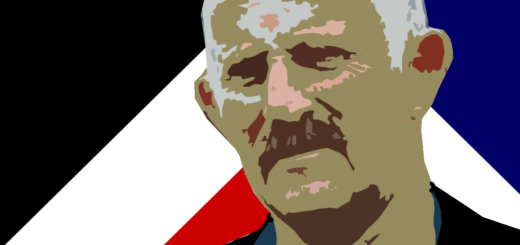You don’t know if you’re a Hufflepuff: the quest for identity
The greeks said “Know thyself” (but they said it in ancient Greek). Socrates apparently also said “the unexamined life isn’t worth living” but then he drank a bunch of poison, so what does he know.
If he’s so smart, why is he dead?
Image: The Death of Socrates, Jacques-Louis David, 1787.
I took an internet quiz, and now I don’t know who I am anymore.
Jack, you remember that time we dressed up as X-men characters for the finale of the Harry Potter film series? I’m going to be talking about that. Not…our questionable and inaccurate costume choices, and not that viewing experience exactly but something tangentially related to that anecdote. Because that’s how we roll.
So you’ve probably forgotten by now that there are four houses in the wizarding school of the Harry Potter franchise, filled with people of like personalities: Gryffindor, Slytherin, Ravenclaw, and Hufflepuff. Gryffindors are clearly J.K. Rowling’s favourite; they’re the heroes of the story, and are known for their bravery, daring, and chivalry. Slytherin is a house full of foils for the heroes; known for ambition, cunning, ruthlessness and being racist. Ravenclaw is the nerd house; valuing wit, creativity and wisdom. Hufflepuff is the least notable house, with barely any memorable characters, valuing loyalty, dedication, honesty, and tolerance. In internet culture, the houses are typically portrayed thus:
(I tried so hard to find the original artist for this).
Initially, Hufflepuff was the big furry badger-butt of my jokes and everybody else’s, but I changed my mind over time. Hufflepuff is the only house whose values include treating other people well. It is the only house whose values really promote positive treatment of other people. Slytherin values ambition – which I typically view as a corrupting influence – and are all about taking care of no. 1. Gryffindor values traits I find impressive but not necessarily admirable, and being wicked chivalrous isn’t exactly the model for good relationships with people. Even though I value the scholarly aspects of Ravenclaw, I think being tolerant and loyal are more important. The way someone treats others is the most important indicator of whether I think they’re a good person. I think if everybody was a Hufflepuff the world would be in better shape.
So I took the Sorting Hat test on Pottermore to find out what house I would be in, and it didn’t turn out to be Hufflepuff as I hoped, or Ravenclaw, as I kind of suspected. No. The sorting hat put me in Gryffindor.
You are what they say you are.
How was I so wrong?
I’ve always kind of held that a self-applied internet test might not be entirely accurate. Maybe others that know you well, but are not swayed by your biases should calculate which kind of ninja turtle you are. Because after all, how well do you know yourself.
You cannot know yourself, or what you’d really do.
Like the monkey unable to recognise itself in the mirror, you don’t even know something as basic as what you look like. You get weirded out by photos of yourself because you’re used to seeing the horizontally flipped version, and you probably even think you’re more attractive than you are. If you were to ask a bunch of friends how they rate themselves on a 1-10 scale of attractiveness, I bet most would give themselves about a seven, and none would put themselves below five. Statistically, that just can’t be the case. We should expect a normal distribution of attractiveness, and face the facts that some of us are below average appearance.
But there’s a ton of this sort of stuff. People tend to express themselves in surveys as kinder, more generous, and of greater willpower than they actually are. And the scientists of the world have gladly formed studies that ask the following questions, and provide the following answers:
- “How good looking are you?” “I’m sorry, you’re wrong”
- “How generous do you think you are?” “Turns out…notsomuch”
- “Rating of 1 to 10, how much willpower do you think you have?” “You might want to knock a couple of numbers off of that”
Scientists will take your personal identity and show you you’re wrong. “Studies show that people have an idealised version of themselves that is incorrect, and they are stupid” (Actual Scientists, 2016). And now, I don’t know what to believe about myself. I don’t who I am anymore.
Maybe you thought you were a Hufflepuff. You wanted to be a Hufflepuff.
You’re a Gryffindor.
You don’t know shit.





